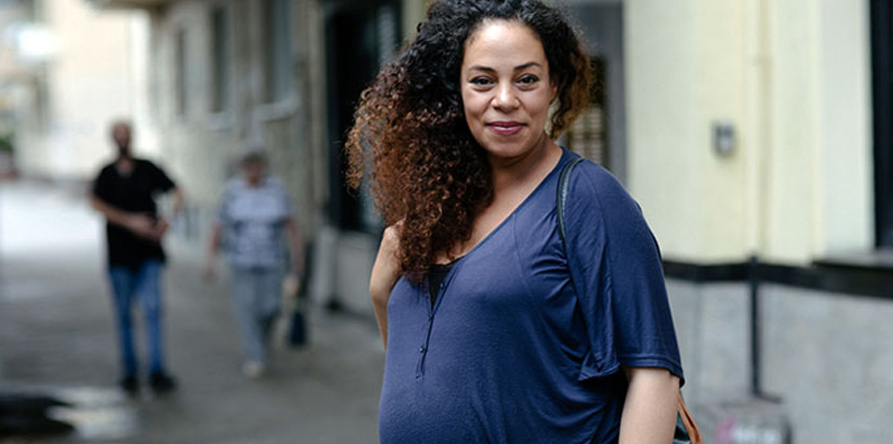
How to prepare for a baby
At 35 years old, Toronto millennial Lorraine and her partner recently learned of a huge surprise.
"I just found out I'm pregnant," Lorraine said. "It's unexpected, but we're excited."
However, along with the excitement comes a lot of fear and anxiety for the couple. Lorraine, making $110,000 a year as a set designer - which includes many work weeks of 80 or more hours - knows that she'll have to prepare for her family's future.
"Goal one is to figure out how much I'll need to save for my family's future. Currently, we live in a house on the Danforth (renting) but we do want more space," she said.
The pair currently split the rent, though Lorraine makes about $50,000 more a year than her partner, who works freelance in trades. The difference in their incomes isn't a huge deal, she says, but they want to be sure that they can give their child as much space as possible without compromising leaving downtown Toronto.
"I have $50,000 saved, my partner has none. We need a bigger space for the baby eventually so we're wondering, do we stay until we can come up with a good down payment or move into a smaller place?" she asked.
Because of her scattered schedule and long hours, she doesn't have designated meals.
"I usually forget to eat or carry around snacks throughout the day. If I do get home at a reasonable time, I prefer to cook. It's not uncommon, however, to skip meals," she said.
On her days off, Lorraine occasionally goes to dinner with friends.
With no debt, she's wondering, should they rent or buy a home? What other expenses will she have to consider?
We asked her to share a week of spending to get a better idea of her finances.
The expert: Certified Financial Planner, Jason Heath, on Lorraine's future.
Congratulations to Lorraine and her partner on the coming birth of their first child. Children change a lot of things from a lifestyle and financial perspective. But first, let's talk about them.
Lorraine has a good income but tends to work contracts ranging from one to nine months. Her partner is a freelance tradesperson. I am guessing they may not have benefits coverage, so insurance needs are something to consider.
As their financial obligations increase with their growing family, I would be inclined to focus on disability and life insurance as the primary risks to insure against. Disability insurance replaces their income if they are sick, injured or disabled and cannot work. Life insurance would replace future income if one of them died so that the survivor and their child could maintain a similar standard of living.
Given their combined income of around $160,000 and a $50,000 down payment, they may be able to buy a $750,000 home as a ballpark estimate. They should talk to a mortgage professional to get a sense. It sounds like Lorraine and her partner are open to staying put or just renting a bigger place instead of buying if it helps them save up for a bigger down payment. Given Lorraine is early in her pregnancy, it could be six months before their baby is born. Babies do not need much space in their first year of life, so they may be just fine where they are for the next 18 months or more.
They should probably spend some time on budgeting, especially for new, future expenses. Lorraine sometimes works 80 or more hours in a week and travels around the province. I do not know what her partner's hours are like, but they are going to have to plan for child care.
Daycare can be expensive, sometimes $2,000 or more per month for an infant in Toronto. Spaces can also be hard to come by, with long waiting lists in some cases, so they should start looking well ahead of time. A realistic assessment of child care and other miscellaneous costs may influence their moving plans
For Lorraine and her partner, I would be inclined to focus on short-term planning for now. Specifically, funding her maternity leave, considering paternity leave for her partner, looking into child-care costs, and coming up with a budget for their new family obligations. Congrats again - a very exciting time for them both!
The results: She spent less! Spending in Week 1: $690. Spending in Week 2: $350.
How she thinks she did: Spending more than $300 less, Lorraine is happy about her finances but also knows that her week-to-week expenses vary.
"Some weeks will be higher with rent, others higher with car payments," she said.
Take-aways: After reading the advice, Lorraine says she's been looking at her future "all wrong."
"I think I was obsessed with the fact that a family equals bigger place," she said. "I forgot to factor in all those other things - from insurance to child care."
Now, she'll be focusing most of her savings and time into researching disability and life insurance, to make sure that surprise complications don't threaten her family. She also wants to figure out who can take care of the baby as she works long days.
"We've discussed this, and we are not opposed to the idea of a stay-at-home dad," Lorraine said. "He can pick up gigs here and there to make extra cash, but I definitely have more stable income."
Moving forward, the pair will temporarily set aside their goals of buying a home and perhaps look at places to rent that may be a bit cheaper than $3,000 a month.
"As the adviser noted, a newborn doesn't need too much space," she said. "We'll be looking at different areas for cheaper rent that can accommodate our future family."
This article was written by Evelyn Kwong from The Toronto Star and was legally licensed through the Industry Dive publisher network. Please direct all licensing questions to legal@industrydive.com.


